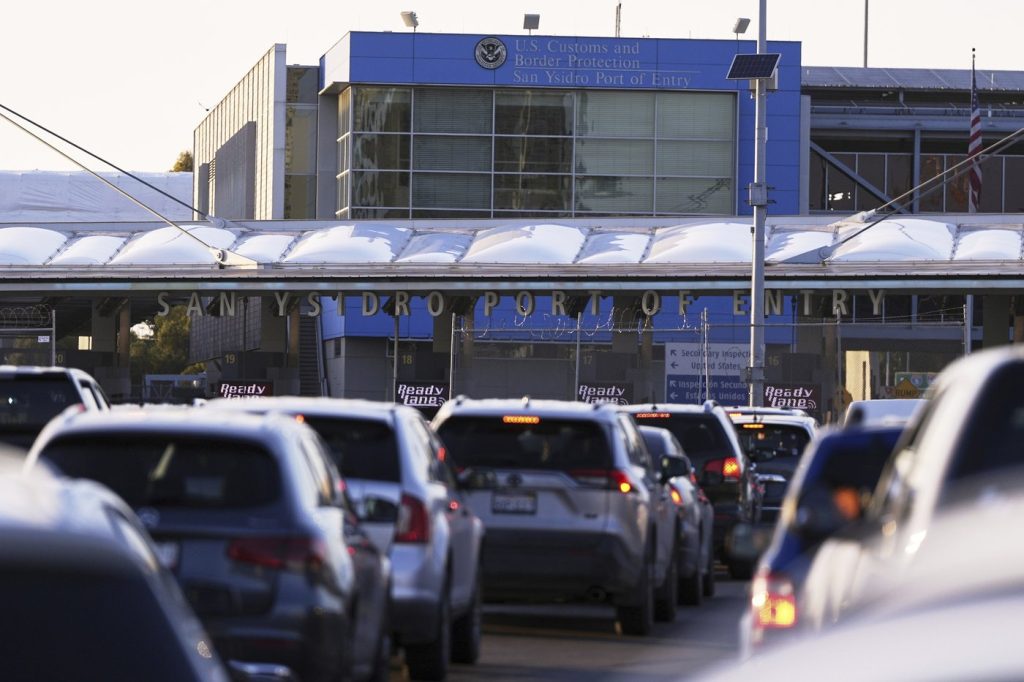LONDON (AP) Travelers planning international trips should be aware of the increased scrutiny their electronic devices may face, particularly when entering the United States. The Canadian government recently issued a travel advisory highlighting that U.S. border agents have the authority to search electronic devices and are not required to provide a reason when requesting access.
This warning comes in the wake of concerning incidents, such as the deportation of a Brown University professor found with a photo of Hezbollah's leader on her phone. Such cases have amplified worries regarding privacy for international travelers.
Patricia Egger, head of security at the encrypted service Proton Mail, notes that while complete privacy may not be attainable, there are several precautions travelers can take to safeguard their data. The best practice, according to experts, is to minimize the information carried while traveling.
Travelers are advised to leave their phones at home if possible. Alternatively, using a temporary or "burner" device is recommended, which should only contain necessary information for the trip. Sensitive data should be uploaded to cloud storage services with end-to-end encryption, while originals are deleted from the device.
In addition to these measures, experts suggest encrypting the storage drive of phones and laptops with a strong password. This security step is crucial as it offers more protection than a simple device passcode lock. Travelers should also disable fingerprint or facial recognition features and rely solely on a PIN or passcode.
At U.S. borders, travelers can face two types of searches: a basic search, which involves officers scrolling through the device's contents without suspicion of wrongdoing, and an advanced search, requiring reasonable suspicion, which could involve copying device contents for further analysis.
Understanding who may be searched is complex. According to Sophia Cope, a senior staff attorney at the Electronic Frontier Foundation (EFF), there are no warrants required to inspect devices at the border. Last year, U.S. Customs and Border Protection agents conducted over 47,000 electronic device searches, a dramatic increase compared to ten years prior. Basic searches can happen randomly or based on an officer's hunch, such as a traveler's background or responses during questioning.
When approaching the border, it is advisable for travelers to power off their devices. Current U.S. border policies stipulate that agents can only access data stored directly on the device, not information held in the cloud. Keeping devices in airplane mode helps ensure that remote files are not accidentally downloaded during searches.
If a traveler refuses to allow a search, American citizens cannot be denied entry into the United States, and this protection extends to lawful permanent residents as well. However, refusal can lead to complications such as questioning, temporary detention, or device seizure. Foreign travelers may face being turned back at the border for non-compliance.
In situations where border agents require access, it is advisable to log in to devices yourself rather than providing passwords. This approach protects against unauthorized access and allows users to change their passwords promptly if needed.
Experts recommend against using biometric unlocking features like fingerprint or facial recognition, as these can be coerced. For example, agents can use a traveler’s fingerprint to unlock a device, a method that poses risks of accessing sensitive data.
For additional precaution, travelers are advised to delete social media applications before traveling to mitigate the risk of leaving trace content on their devices. Beyond smartphones and laptops, other electronic devices such as digital cameras, smartwatches, and external hard drives can also be subjected to searches by border agents.
Some protective strategies may inadvertently raise suspicion, such as completely wiping a device’s hard drive before travel. This act may prompt further questions from border agents. Furthermore, attempting to hide information can lead to severe consequences, as lying to border agents is classified as a serious offense.
Travelers are encouraged to familiarize themselves with the legal requirements of their destination. For example, in the UK, individuals can be mandated under counterterrorism law to hand over devices and passwords at the border, with substantial penalties for non-compliance.










